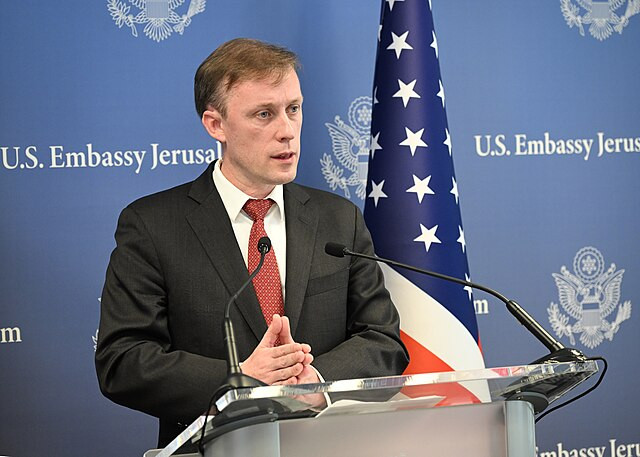The Biden administration has made it clear that returning nuclear weapons to Ukraine is not on the table, emphasizing that its focus remains on providing conventional military support to Kyiv in its ongoing war against Russia. National Security Adviser Jake Sullivan addressed the matter on Sunday, dismissing reports that such a drastic step was under consideration.
"That is not under consideration. No," Sullivan said during an interview on ABC's This Week. "What we are doing is surging various conventional capacities to Ukraine so that they can effectively defend themselves and take the fight to the Russians-not nuclear capability."
This statement came in response to a recent New York Times article that cited unnamed Western officials who suggested that President Joe Biden could consider giving nuclear weapons to Ukraine before leaving office. The suggestion has provoked sharp criticism from Moscow, with the Kremlin denouncing the idea as "absolute insanity."
Ukraine surrendered its nuclear arsenal-the third largest in the world at the time-in 1994 under the Budapest Memorandum, a security assurance agreement brokered with the United States, the United Kingdom, and Russia. In exchange, Ukraine received guarantees of sovereignty and territorial integrity. However, Russia's 2014 annexation of Crimea and the 2022 full-scale invasion have cast doubt on those guarantees.
President Biden has consistently supported Ukraine with military aid and financial assistance. The Associated Press reported that the U.S. recently approved $275 million in additional weapons for Ukraine, along with forgiving $4.7 billion in loans. Sullivan highlighted the urgency of delivering this support before the administration transitions to President-elect Donald Trump in January. "President Biden directed me to oversee a massive surge in the military equipment that we are delivering to Ukraine so that we have spent every dollar that Congress has appropriated to us by the time that President Biden leaves office," Sullivan explained.
The Kremlin has warned against any nuclear escalation, with spokesperson Dmitry Peskov said those who make such statements do not feel "a shred of responsibility." Russia, which holds the largest nuclear arsenal globally, recently updated its nuclear doctrine to lower the threshold for use. The revised policy allows for a nuclear response even to conventional attacks involving nuclear-backed adversaries.
The ongoing conflict has seen Russia approve record-high defense spending for 2025, with over $145 billion allocated to national defense, representing 32.5% of the federal budget. Moscow's move underscores its commitment to the war, despite facing international sanctions and economic isolation.
Ukraine, for its part, has remained resolute in its demands for support. President Volodymyr Zelensky has dismissed any notion of compromising the country's sovereignty, stating last month, Ukraine "cannot legally acknowledge any occupied territory of Ukraine as Russian."
Looking ahead, the impending change in U.S. leadership raises questions about the future of American aid to Ukraine. President-elect Trump has criticized the extensive military support provided by the Biden administration and has claimed he could end the war "within 24 hours" by brokering negotiations between Zelensky and Russian President Vladimir Putin. Critics fear such negotiations might pressure Ukraine into territorial concessions.




